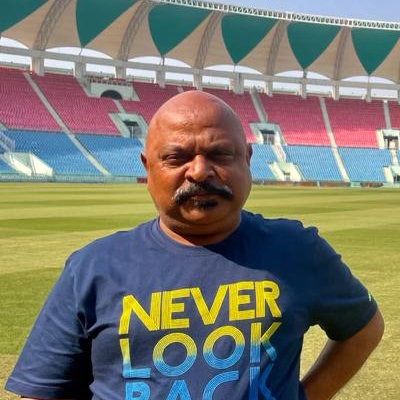Rajiv Mishra, who lit up the 1997 junior World Cup with nine goals and whose career was derailed by a poorly managed knee injury, died in Varanasi, friends and family members said on Friday. He was 42.
Mishra, a chief inspector of ticket (CIT) with Northern Railways’ Lucknow Division, was alone in his house when he died following a brief illness. He is survived by wife, two children, two older brothers and sister.
Born in Kolkata – his brothers and sister live here and he was in the city for a wedding earlier this year – in a family from Leeludabait village in Hajipur, Bihar, Mishra learnt the sport under Ashim Ganguly at Kolkata’s Entally Athletic Club before moving to the Sports Authority of India hostel in Varanasi. As a speedy forward who loved to and could dribble, he broke into national hockey scene in the mid-1990s. His curly hair, bandana and stylish game made the 19-year-old hugely popular.
Mishra’s goals in the junior World Cup in Milton Keynes helped India make the final where they lost 2-3 to Australia. But when India won the Asian Games gold in 1998, a first in 32 years, Mishra, whose progress to the senior team had seemed a formality, was struggling with a knee injury. One that never healed.
It happened in 1998 during a practice game at National Institute of Sports, Patiala. Following surgery, Mishra was expected to make full recovery but couldn’t possibly because he had turned out for his employers earlier than advised. Including a brief stint at East Bengal, Mishra’s career turned out to be a saga of what could have been.
Mishra never played for India as a senior international and that had a big impact on his mental health. That fans remembered his flamboyance and flair, often choosing to travel on the train he was working on, was scant consolation.
“I have never seen such a player, who rose from ordinary to exceptional,” said Prem Shanker Shukla, who had coached Mishra, sounding emotional. “Two months ago, we were in Kanpur discussing the golden days of his hockey and he looked alright.”
On Ganguly’s insistence, it was Shukla who encouraged Mishra, then 13, to shift to Varanasi. “In a very short time (at the SAI centre) he pushed everyone back through hard work. Even I was surprised. He was so disciplined and dedicated,” said Shukla.
Mishra would say that one of Shukla’s punishments helped him dive and score in the semi-final against Germany in 1997. “Rajiv told me that the 100 forward rolls and 100 back rolls he would have to do when punished helped him fling himself on the turf without hesitation,” said Shukla.
Shukla said Mishra could have been a star had the hockey federation dealt with his injury better. “IHF (Indian Hockey Federation) virtually disowned this world-class player. Even I wrote so many letters to those concerned, but no one cared,” he said.
Rajnish Mishra, former India captain and Mishra’s roommate at the training camp for the 1998 men’s World Cup, said: “Rajiv was considered a worthy successor to India’s great forwards Mohammed Shahid and Dhanraj Pillay.”
Mishra’s talent evinced keen interest among foreign teams as well. At the junior World Cup, Dutch coach Roland Oltmans set up three cameras to film Mishra’s mazy runs. Oltmans said he was the fastest Indian forward he had seen. Then Australia coach Barry Dancer praised him as “the most devastating forward” among juniors in the past decade.
